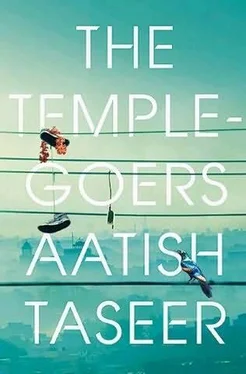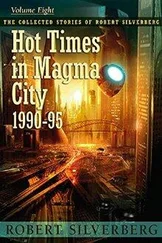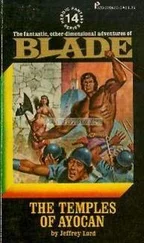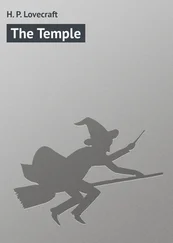‘What happened?’
‘It didn’t work. The guy thought she was too healthy. Can you imagine?’ He smiled sadly. ‘All these guys rejecting her because she’s too healthy, then there’s me who wants to marry her the way she is and they won’t let me. You know, they’re even considering sending her for lipo.’
‘Lipo?’
‘They suck out the fat…’
‘Yes, yes, I know,’ I said, looking up, then the thought of his marriage returned. ‘Who else knows about this?’
‘Nobody, man. Just you. You know, I don’t have much of a friend circle. And I haven’t told anyone in my family.’
I was caught between a feeling of tenderness at the confidence made only to me and deep irritation at Aakash’s willingness to burden me with his problems. In just a few seconds, it had altered not only the way I saw his and Megha’s relationship, but the way I saw ours. I felt it shed for the first time some of the strange intensity, as of a childhood friendship, that had defined it since its conception. And reckless though I felt he’d been, marriage made Aakash seem like a man.
Downstairs, the rain had gone and the sun was burning its way through. Whole sections of the street dried before our eyes. In the car, heading to Connaught Place, Megha knew of Aakash’s disclosure. I thought she displayed something of the satisfaction of a daughter-in-law who’s just won her first battle against her husband’s family. She would have jangled the house keys in her palm if she had any. Aakash was visibly relieved. The weight of their dangerous secret had shifted for that moment on to me.
The car, picking its way from roundabout to roundabout, swung on to Janpath for the last time. The off-white colonnaded façades of the Eastern and Western courts, the Imperial Hotel and Delhi’s few tall buildings lined the road, at the end of which the roar of Connaught Place could be heard. Its whitewashed façade was damp and streaked black. Its crumbling columns, poster-covered and pan-stained, seemed to revolve slowly around us that morning like a carousel.
‘Van Hussein!’ Megha said, pointing at the billboards that dotted the circular sweep of Connaught Place. Aakash and Megha knew them all – Nike, Reebok, Puma and Benetton. Though prime real estate, Connaught Place was still rent-controlled. And among the new showrooms there were ancient shops of my childhood: bookshops, coffee houses, sari centres, high-ceilinged games shops selling carom boards. In the gloom of their colonnaded passages, black wires ran like creepers along the high walls and fine heaps of dust collected under splashes of red pan spittle, rising so far up from the base of the white columns that the mind was forced to think of the chewer’s technique. Fire extinguishers, thick coir doormats and plastic buckets cluttered the entrances of shops, and sleazy flights of stairs led up to the offices of reputable news magazines.
We hit every important shop with great precision. Aakash didn’t shop for himself, but for me. He marched through each glass door, chest out, arms dangling at his side, like a man looking for a fight. He glowered at the doormen if he sensed even the slightest hesitation in their manner towards him. Once inside, he tore through the neatly folded displays, ruffling them up at will. He had me try on slinky black exercise shirts with many little holes, lime-green T-shirts with American road signs on them, and capris. Aakash and Megha were both wild about capris. I said I couldn’t do it, but they insisted I try them on. Megha had a hunger for bold colours. But what might have been bold and still simple in Indian clothes got lost in the Western showrooms. It manifested itself in busyness and clutter, in pointless buttons, stripes and straps, in decorative pockets and zips that led nowhere.
Megha was very keen for Aakash to buy a pair of sports sandals. They were expensive and I could see Aakash recoil from them. He made excuses that were unrelated to money: that he had so many already, that they were better elsewhere. Seeing him in the showroom, unshaven and vulnerable about money, I felt again, as I had in Hookah, the fragility of his ‘upgrading’ of himself. It was possible to see him in the showroom, but it was also possible to see him in the street in blue rubber chappals and polyester shirts. And sometimes when he’d eaten pan masala and his skin was looking darker than usual, or his stubble too thick, he seemed even physically like a man about to slip. And how soundless that fall would be, muffled by millions below…
It was not a fear either Megha or I could have known. Even to imagine what constituted our security would have been strange. There were so many impermeable barriers unrelated to money, barriers of English and education and the people one knew. But now, thinking of them as married, their fortunes clubbed together so to speak, I felt I couldn’t call the outcome. Could Megha, disowned by her family, fall with Aakash if he were to fall? Or was his upward momentum too great to be broken, so that she wouldn’t fall far before he would take her fleshy hand in his and they would begin moving up again?
To witness some of this tension in the shape of the fat wife, still sure of her riches, gently taunting her husband over a pair of rubber sport sandals, was to imagine many future scenarios of this kind. And Aakash, giving an indication of how he might behave, became suddenly irritable. His heavy eyelashes sank, a look of boredom crept over his face; only the mud-coloured eyes, smouldering with contempt, revealed that he felt neither fatigue nor boredom, but irritation. Megha, who had pushed her way up to the shelves and shown another bit of pink panty as she took down the rubber sandals, now contained her talk about wanting to buy the sandals as a present for Aakash.
‘What’s wrong?’ she said, seeing the expression on her husband’s face darken.
‘Nothing, appu,’ he replied, using a term of endearment I had not heard so far. ‘I’m just hungry.’
‘Pizza Hut?’ she offered.
‘I’m sick of Pizza Hut,’ he answered, and headed for the door.
When we were outside in the car park, waiting for Uttam, she produced a garlic stick from her handbag. At the sight of it, Aakash’s eyes became two bitter slits of disgust.
‘Mantra,’ she announced urgently. ‘Mantra. He gets very hungry on Saturdays,’ she added apologetically to me. ‘It’s because of the fasting.’
On the way to Mantra, Aakash seemed really to wilt. His eyes, now yellow, receded into their sockets. Megha, like a nurse, turned back and forth between him and me. ‘Let his hunger go,’ she said optimistically in English, ‘then he’ll for sure want to pick up those sandals before going.’ And tenderly to him, ‘We’ll get them, no?’ He was too faint to reply. ‘Do you want us to give you shoes for your birthday?’ she said in Hindi, then laughingly added, ‘Or do you want us to give you chappals?’
The car pulled up outside Mantra. It was a dimly lit restaurant with maroon leather seats, red chandeliers and gold-leaf walls and mirrors. It was owned by the same designer that Aakash had had his run-in with on Holi, the Holi that now seemed an age away. I mentioned this as we sat down.
‘Really?’ Aakash asked, mustering up some energy for the subject of wealth and fame, the only subject for which he always had time. He listened for a while, then spat, ‘They’re all creeps.’
Megha, who took in every word, said, ‘No. I heard he only decorated it.’ Her manner seemed to hide irritation that Aakash’s restoration had happened before plan and by other means.
‘He owns it,’ I said. ‘I’ve been here when he’s had parties.’
Aakash liked this. He impressed upon her that I knew what I was talking about. But she was not to be put down; the two large diamonds in her ears gleamed like teeth. And when the waiter came around, the first thing she asked him, despite Aakash’s hunger, was who owned the restaurant. Even when he had said, ‘Mateen Butt,’ she was undeterred. ‘But I saw on Zoom,’ she said, cross-questioning the man, ‘that he only decorated it.’
Читать дальше












